
INVERTEBRATES - Spectrum of Homeopathy 03/2021
The comparison between the evolution in the natural kingdoms and the psychological developmental stages of humans has not only led in recent years to a better understanding of the homeopathic materia medica but also put the focus on remedy groups associated with the initial phase of plant and animal development. As a counterpart to the ancient plants “Mosses and Ferns” (SPECTRUM 2/2021) we now present the invertebrates group, which is the origin of the animal world – indeed the oldest representatives of this group are easy to confuse with plants. |

|
Jürgen Hansel: Lower Animals without a backbone
Homeopathic classification of the invertebrates |

|
Ghanshyam Kalathia: Fully taken care of
Sponges and the typical themes of the invertebrates |

|
Ghanshyam Kalathia: Completely weightless
Jellyfish and the typical themes of the Cnidaria |

|
Rao Ganeshwara: Clinging but quarrelsome
Corallium rubrum in a case of schizophrenia |

|
Atul Patwardhan: Highly strung
Heteractis malu – a flower-like animal |

|
Jonathan Hardy: I go inside myself
Mussels, snails and octopuses at the level of sensation |

|
Deborah Collins: Safe in my little world
Patella vulgata – immature and deeply anxious |

|
Jutta Hettkamp: Absent-minded and full of energy
Arenicola marina clears up the eyes |

|
Anna Koller-Wilmking: Seafood best of all
Astacus and Homarus for susceptibility to infection |

|
Iris Philippsen: Life in the deep freeze
Crangon crangon – the developmental model of brown shrimp |

|
Yamini Ramesh: On one´s own feet
Asterias rubens for hormonal acne |
INVERTEBRATES - Spectrum of Homeopathy 03/2021
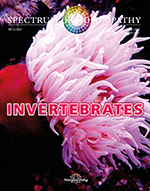
average customer rating:  182
1824,6 out of 5 Stars 122 reviews (german), 60 reviews (english) Top commentsShow newest comments firstJanine verified purchase

7 years ago
Spectrum of Homeopathy
Always inspiring and relevant. I find that I often go back to my library of Spectrum journals to re-read for reference when I have unusual cases as they provide me with alternative answers. read more ... 10 people find this helpful. Do you find this helpful?
 Yes Yes No NoFrancis Treuherz verified purchase

2 years ago
very interesting
I have retired from clinical practice at the age of 80. Spectrum fills the gap and enables me to keep up with the developing ideas of homeopathy by reading the intelligent discussions of themed materia medica. read more ... 6 people find this helpful. Do you find this helpful?
 Yes Yes No NoDenise Wilhelmi

2 years ago
Reptiles "E Book"
I spent 2 days trying to download this Ebook and finally contacted Adobe to find they cannot help me as Adobe does not support the Elements download programme. I emailed Narayana Verlag 'contact person' to request help or a replacement hard copy. The outcome is l need to cancel my order and re order a hard copy. If i am successful i will do another review. I have been satisfied with previous books purchased through Narayana Verlag. Best Regards. Denise read more ... 2 people find this helpful. Do you find this helpful?
 Yes Yes No NoTuija Kokko verified purchase

2 years ago
1 person finds this helpful. Do you find this helpful?
 Yes Yes No Nocaroline hayward verified purchase

4 years ago
e-book Spectrum
having subscribed to Spectrum consistently since its launch its become a very important and informative journal for viewing a window into contemporary and classical methodologies of many experienced Homeopaths from all areas of practice. Its wonderful to be able to access the e-book version especially at this time of a global crisis but I'd much prefer the hard copy to be able to turn pages manually as is so much easier to review the articles and hidden gems of information. It also provides details on the latest books and reviews. read more ... 1 person finds this helpful. Do you find this helpful?
 Yes Yes No NoTania Rodriguez-Arias verified purchase

6 years ago
Fascinating account of peadiatric cases
Very interesting issue for practitioners and families wanting to learn more about the different approaches and case studies on children with developmental and behavioral disorders read more ... 1 person finds this helpful. Do you find this helpful?
 Yes Yes No NoSarah Hemesley verified purchase

2 years ago
Spectrum - Mammals
Very high standard and depth of cases, as always with this brilliant magazine read more ... Do you find this helpful?
 Yes Yes No NoLaurie Teal NPP verified purchase

2 years ago
Spectrum Trauma
Very well done. Helpful. Good understanding of combine methodology using Sankaran and Scholten’s work. read more ... Do you find this helpful?
 Yes Yes No NoDenise Hadden verified purchase

2 years ago
Long Covid - A wonderful collection of valuable information
A wonderful collection of valuable information Thank you! read more ... Do you find this helpful?
 Yes Yes No No |
||||||



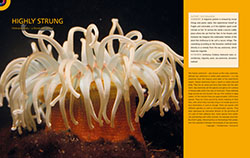












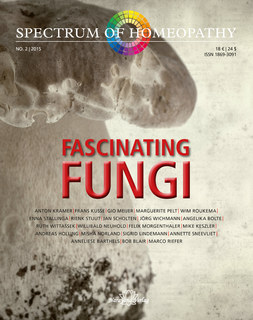
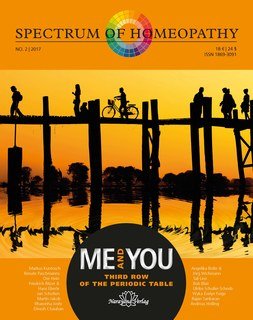
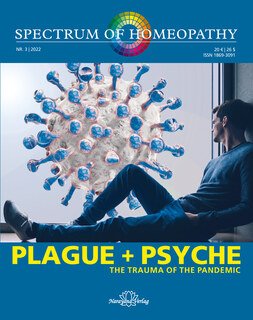
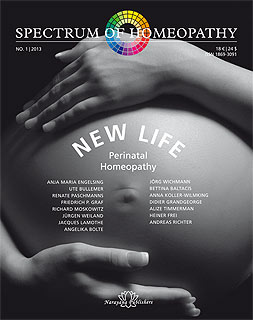
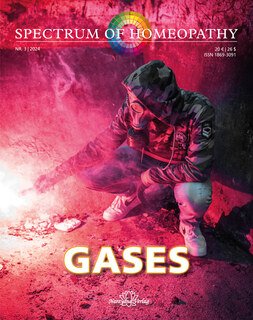
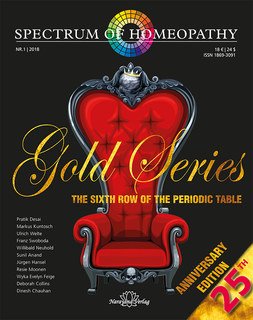
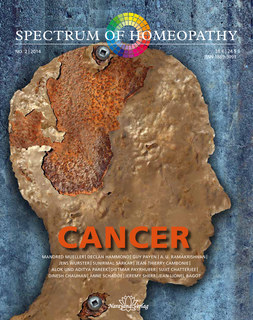
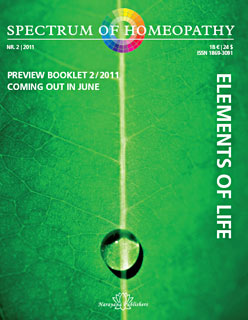
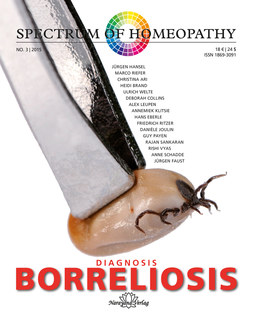
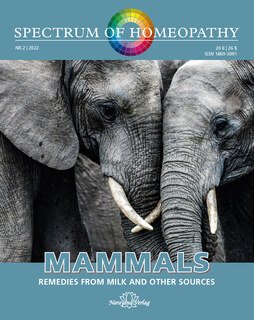
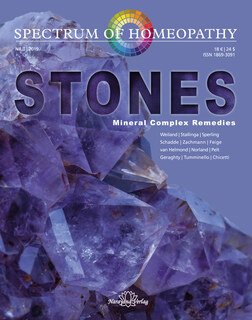
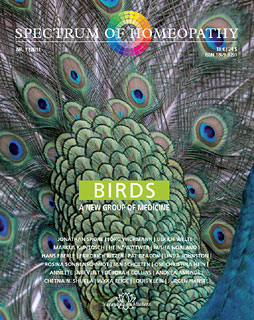


Wonderful reviews, specifically the ones dedicated to vaccination read more ...